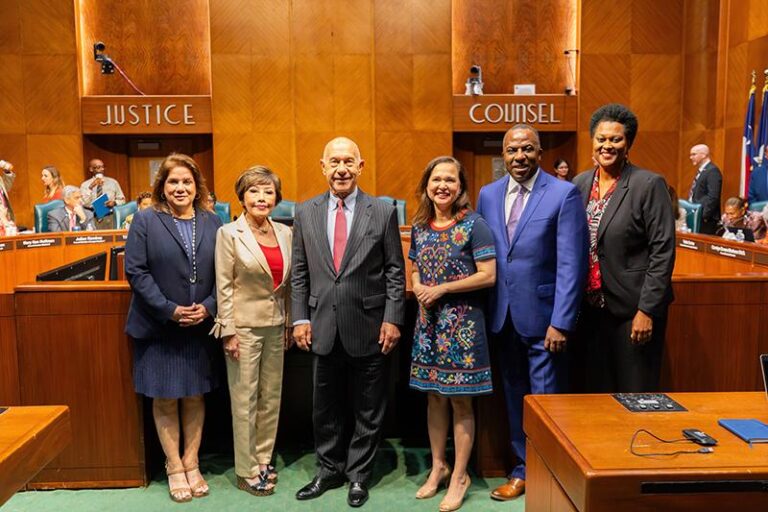Controversial Flood Remarks by Former Houston Official and Pediatrician Ignite Public Debate
Public Outcry Over Flood Comments from Former Houston Board Member and Pediatrician
Recent statements made by a former Houston board member, who is also a practicing pediatrician, regarding the city’s persistent flooding problems have sparked widespread criticism from residents and local authorities. The remarks, perceived by many as downplaying the gravity of Houston’s flood risks, have deeply upset those directly impacted by flood damage and displacement. Critics contend that such comments risk diminishing the urgency required to address the city’s aging infrastructure and the increasing threats posed by climate change.
Community advocates and local leaders have demanded a formal apology and a renewed commitment to comprehensive flood mitigation strategies. Key points fueling the controversy include:
- Underestimating flood dangers, which many feel dismisses the hardships faced by vulnerable communities.
- Scrutiny of the official’s past role in influencing flood-related policies during their tenure on the board.
- Calls for greater transparency regarding the data and decision-making processes behind flood management initiatives.
This incident highlights the ongoing challenge of reconciling expert perspectives with community expectations in Houston’s flood resilience planning.
Community Advocates Demand Accountability and Greater Inclusion
In response to the contentious remarks, several prominent community figures have voiced their concerns about the tone and implications of the statements. Activists emphasize the necessity for respectful and accurate communication when addressing climate-related disasters, warning that insensitive comments can erode public confidence in officials responsible for disaster preparedness and recovery.
“Restoring trust requires accountability and empathy,” stated Maria Gonzalez, director of the Houston Resilience Network, urging leaders to engage in flood discussions with both factual precision and compassion.
Community groups have outlined several key demands to promote transparency and collaboration:
- Formal apologies from those who minimized flood impacts.
- Creation of open public forums dedicated to flood mitigation dialogue.
- Enhanced community participation in flood risk assessment and communication.
- Regular dissemination of environmental data and updates on infrastructure projects.
| Community Leader | Position | Key Message |
|---|---|---|
| Maria Gonzalez | Director, Houston Resilience Network | “Accountability and empathy are vital to rebuild trust.” |
| Tom Reed | Coordinator, Neighborhood Watch | Advocates for community-driven flood planning. |
| Dr. Angela Kim | Pediatrician & Public Health Advocate | Highlights the health consequences following floods. |
The Necessity of Compassionate Communication in Disaster Contexts
Experts stress that public figures must handle discussions about natural disasters with heightened sensitivity, especially in light of the recent remarks by the former Houston official and pediatrician. The backlash serves as a reminder of the importance of empathetic communication that honors the trauma and losses endured by flood-affected communities, rather than inadvertently minimizing their experiences.
Effective communication during crises should adhere to several principles:
- Prioritize empathy by acknowledging the human toll over technical or political rhetoric.
- Refrain from speculative or dismissive comments that may alienate or offend those impacted.
- Offer clear, actionable guidance to help communities navigate safety and recovery.
- Coordinate messaging with local authorities and experts to maintain accuracy and consistency.
| Recommended Communication Strategy | Illustrative Example |
|---|---|
| Express sympathy | “Our thoughts are with families affected by the floods.” |
| Provide verified updates | “Temporary shelters are available at these community centers.” |
| Encourage community support | “Please consider contributing to local relief organizations.” |
| Avoid assigning blame | “Our focus remains on recovery and rebuilding.” |
Guidelines for Public Officials to Foster Constructive Engagement with Flood-Affected Residents
Officials addressing communities impacted by flooding must demonstrate empathy and transparency to build trust and prevent feelings of neglect. Genuine dialogue that listens to residents’ experiences is crucial before issuing public statements, ensuring communications are respectful of the trauma caused by natural disasters.
Meaningful engagement also requires tangible actions that align with public messaging. Providing clear timelines, resources, and opportunities for follow-up shows commitment and accountability. Recommended practices include:
- Empowering community-led recovery efforts to involve residents directly in rebuilding.
- Maintaining consistent communication through diverse platforms such as social media, town halls, and local media.
- Partnering with experts and grassroots groups to develop inclusive, practical solutions.
| Engagement Principle | Suggested Action |
|---|---|
| Empathy | Incorporate personal stories from affected residents in communications |
| Transparency | Regularly update the public on recovery milestones and challenges |
| Accountability | Set and report on measurable goals for relief and infrastructure improvements |
| Inclusivity | Engage a diverse range of community leaders in planning and decision-making |
Conclusion: The Need for Thoughtful Dialogue on Houston’s Flood Challenges
The controversy sparked by the flood-related comments from a former Houston board member and pediatrician has opened a wider discussion about the importance of accountability and sensitivity among public figures. As Houston grapples with increasing flood risks exacerbated by climate change—recently ranked among the top U.S. cities vulnerable to flooding by the First Street Foundation—residents and stakeholders are demanding more informed, respectful conversations. This episode underscores the critical role of measured, empathetic communication in advancing the city’s flood preparedness and resilience efforts.

